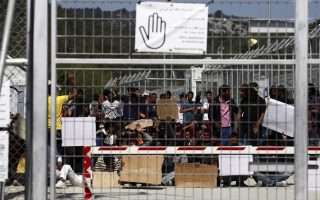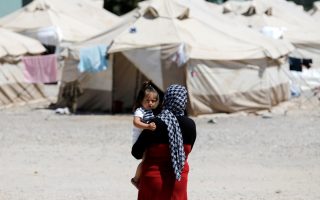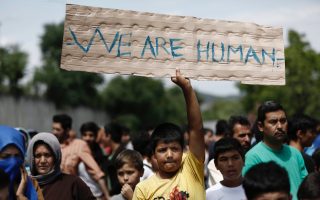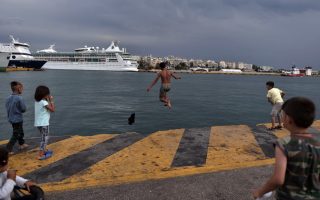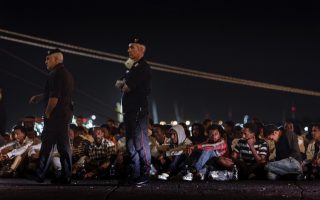Gov’t plans 12 more centers for migrants in central Greece
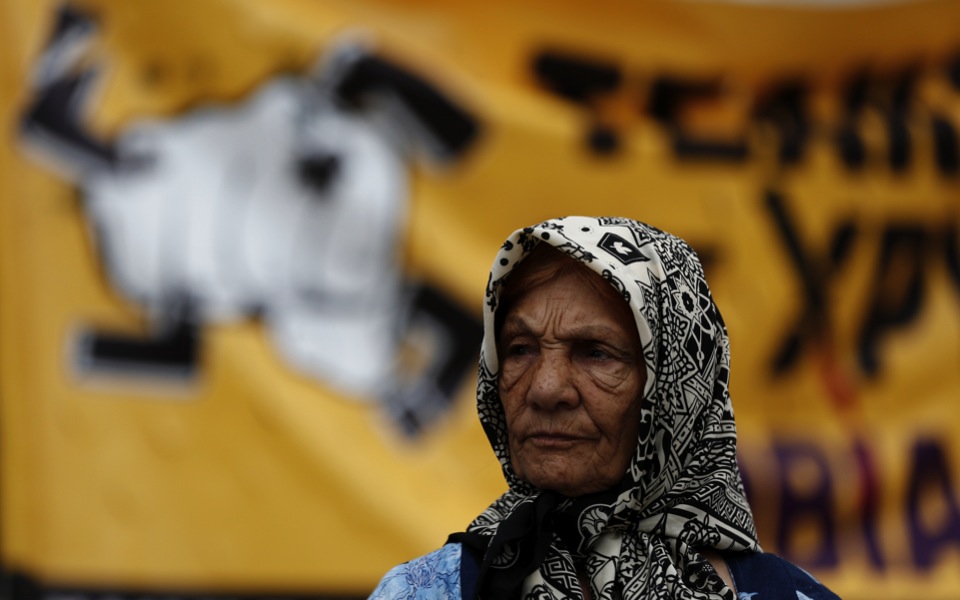
The government has announced the creation of 12 additional migrant accommodation centers in central Greece and its intention to reconstruct shelters at Koutsohero in Larissa, Katsika in Ioannina and Ritsona in Evia – three centers beset with serious structural problems.
The announcement was made on Friday by Alternate Defense Minister Dimitris Vitsas, who added that the top priority in coping with the country’s acute migration problem will be the transfer of refugees from Piraeus port and Elliniko, two of the biggest thorns in the government’s side.
His remarks came amid growing anger at living conditions at migrant centers around the country and increasingly louder protests from local residents.
In the latest among a growing number of incidents, Afghan families at Malakasa camp demonstrated on Wednesday against the quality of the food – a common complaint at centers throughout Greece – and poor living conditions.
According to reports, there is just one bathroom for 1,300 women at the camp.
But it’s not just the migrants who are protesting, as the welcome of local residents on several Greek islands is wearing thin, particularly on Lesvos, where authorities raised the alarm about an increase in crime and called for a permanent police presence, especially around the Moria camp.
The latest official estimate puts the number of migrants throughout Greece at 57,112.
Of this number 5,509 are staying at shelters and structures managed by the UN High Commissioner for Refugees (UNHCR), 8,197 are on islands in the eastern Aegean and 14,830 are in Attica – with the port of Piraeus providing temporary shelter to 1,397 while there are more than 3,600 refugees at the three shelters in Elliniko and 3,000 at Skaramanga.
In central Greece, there are 2,155, 283 in southern Greece and 26,139 in northern Greece (Macedonia and Epirus).
Meanwhile, the Education Ministry announced the completion of a study conducted by a government-commissioned scientific committee assessing the educational needs of children stranded at the camps and shelters, which will allow it to draft a plan of action to cope with problem of thousands of youngsters deprived of schooling.
